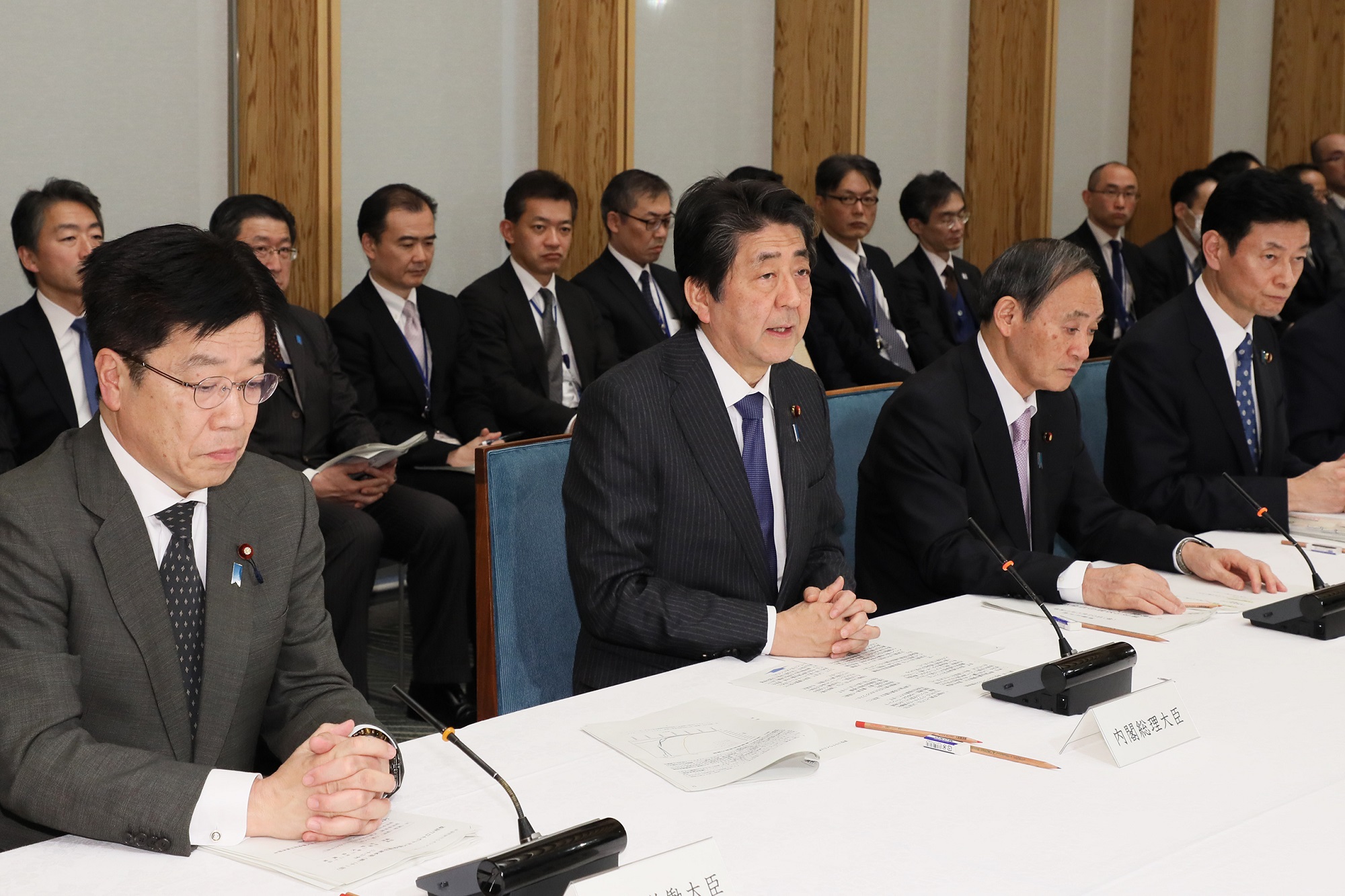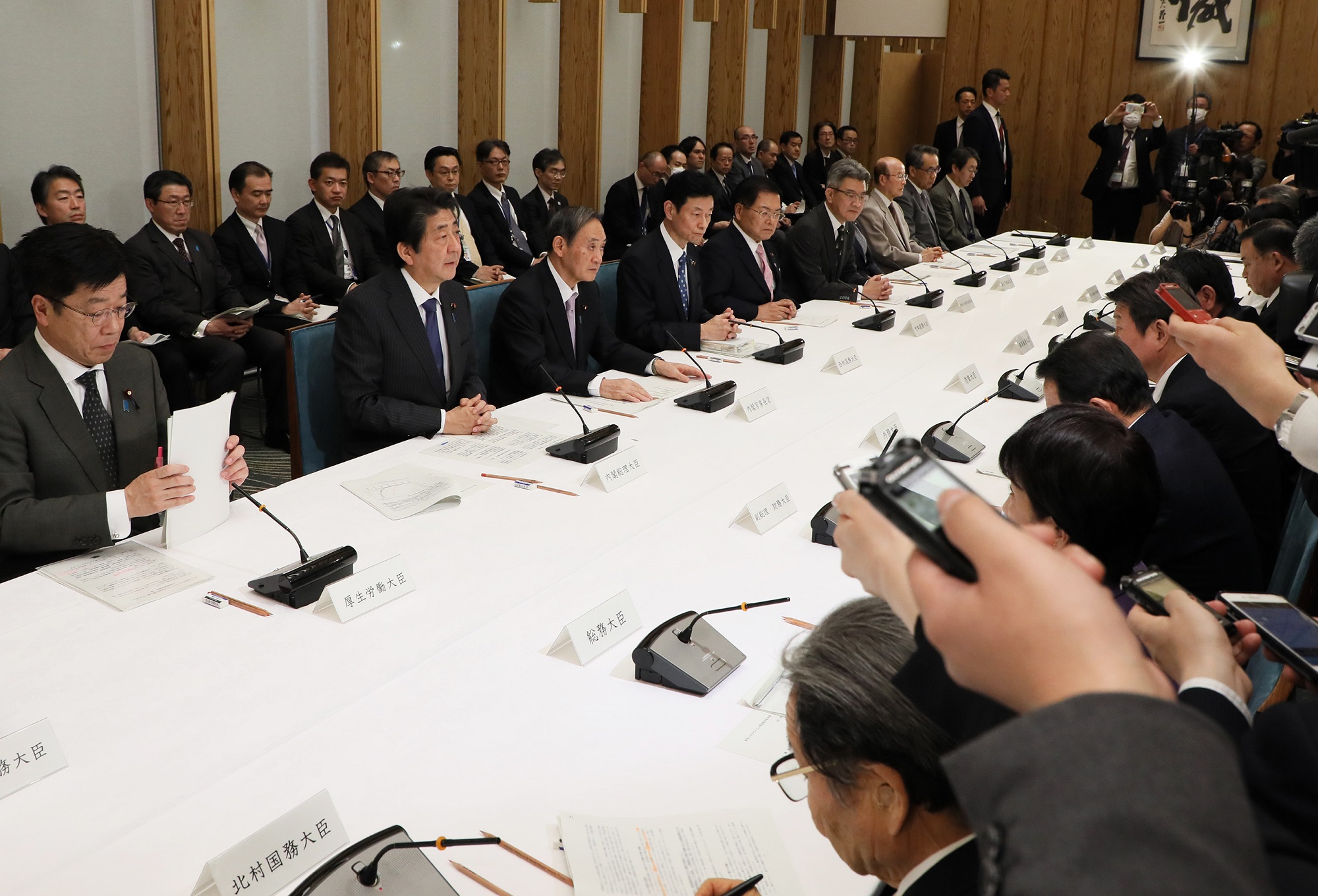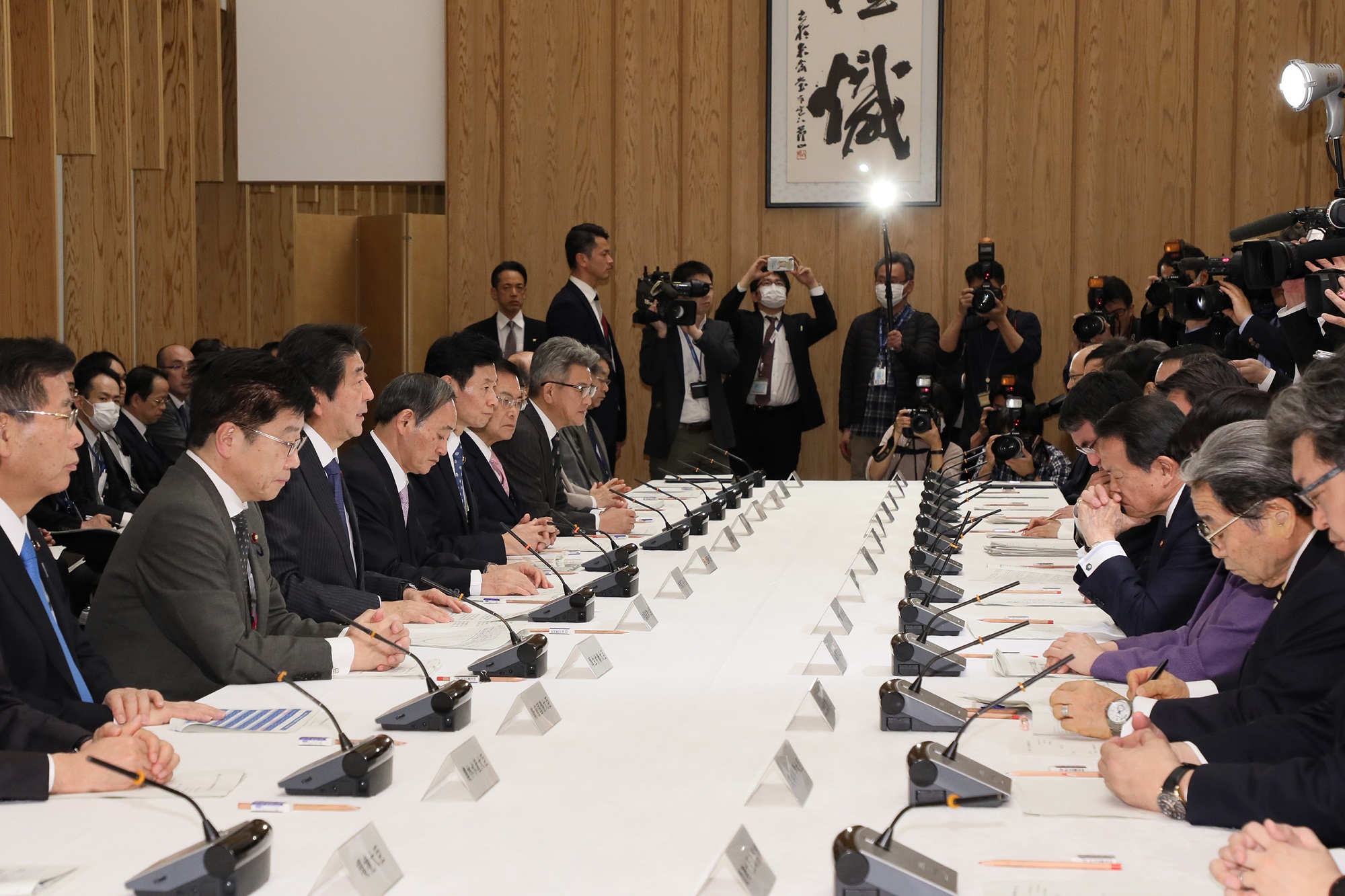Home > News > The Prime Minister in Action > March 2020 > 21st Meeting of the Novel Coronavirus Response Headquarters
The Prime Minister in Action
21st Meeting of the Novel Coronavirus Response Headquarters
March 20, 2020
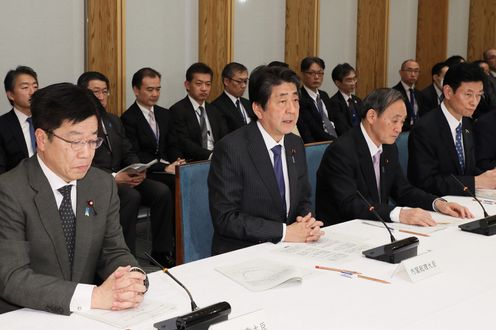
Photograph of the Prime Minister making a statement (1)
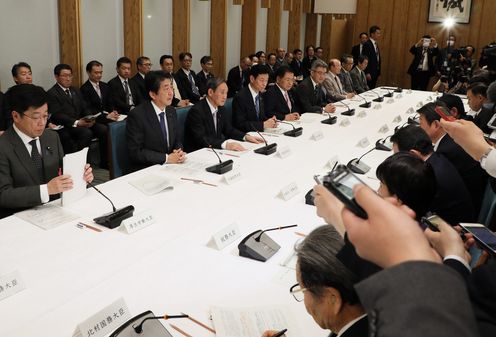
Photograph of the Prime Minister making a statement (2)
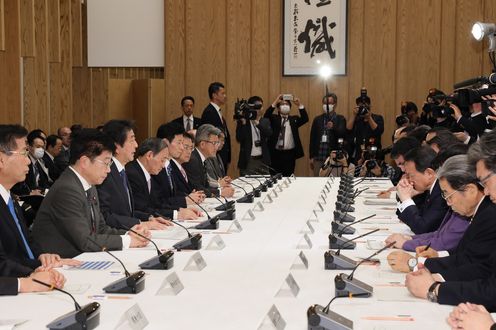
Photograph of the Prime Minister making a statement (3)
[Provisional Translation]
On March 20, 2020, the Prime Minister held the 21st meeting of the Novel Coronavirus Response Headquarters at the Prime Minister’s Office.
At the meeting, a discussion was held on the response to the novel coronavirus (COVID-19).
Based on the discussion, the Prime Minister said,
“The expert meeting was convened and the experts provided an analysis of the current infection situation in Japan and the effectiveness of the various measures taken so far to prevent the spread of infections. They also provided the recommendations.
Regarding the current infection situation in Japan, it was assessed that, while the situation is not moving toward an explosive spread of infections and appears to be continuing to hold steady, the spread of infections is being observed primarily in urban areas where the number of infections is gradually increasing.
In Hokkaido, thanks to the early efforts made by citizens in response to the declaration of a state of emergency, they have been able to avoid a rapid increase in infections. In areas outside Hokkaido, the number of new cases of infections has slightly decreased due to the appropriate actions taken by the public, such as refraining from holding large-scale events, temporarily closing schools, and cooperating to stagger working hours. While the impacts of the respective measures may not be specified, it was concluded that these efforts can be said to have been effective.
Based on these analyses, the experts point out, if we do not continue these efforts, there is a possibility of the formation of larger patient clusters, chains of infections, and even a sudden surge of patients, also known as an overshoot, in any part of the country.
Based on these views expressed by the experts, the government will fundamentally strengthen its counter-cluster measures in order to break the chains of infections, and, in preparation for the sudden surge of infections, exert every effort to set up medical treatment structures that put emphasis on providing medical care for patients with severe symptoms.
We ask the public to continue to take actions to avoid places that meet the following three conditions simultaneously: 1) poor ventilation, 2) crowded with many people, 3) people talking or speaking at close range.
In addition, regarding schools that have temporarily closed following the government’s request, I instruct the Ministry of Education, Culture, Sports, Science and Technology to compile as soon as possible a specific guidance towards the reopening of schools for the coming semester.
Regarding large-scale national events and other such occasions, we have asked for the cancelation, postponement or downscaling of such events. The expert meeting advises that the organizers should assess the risks and make a cautious decision. We ask those organizers who are to make such decision to refer to the examples of preventive measures and pay full attention to the prevention of the spread of infections.
We will further implement thorough measures to prevent the spread of infections, prioritizing the protection of the health and lives of the people over anything else, while minimizing the socio-economic impacts. I ask for your continued cooperation.”

